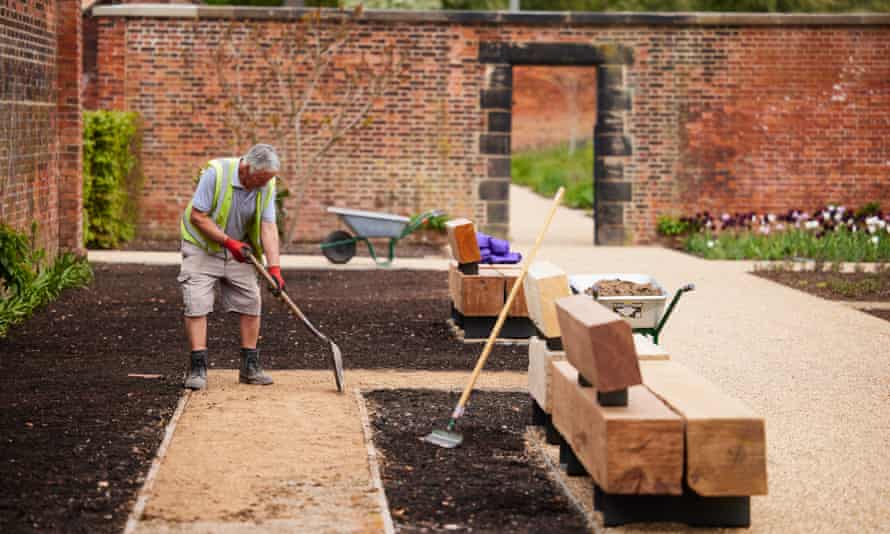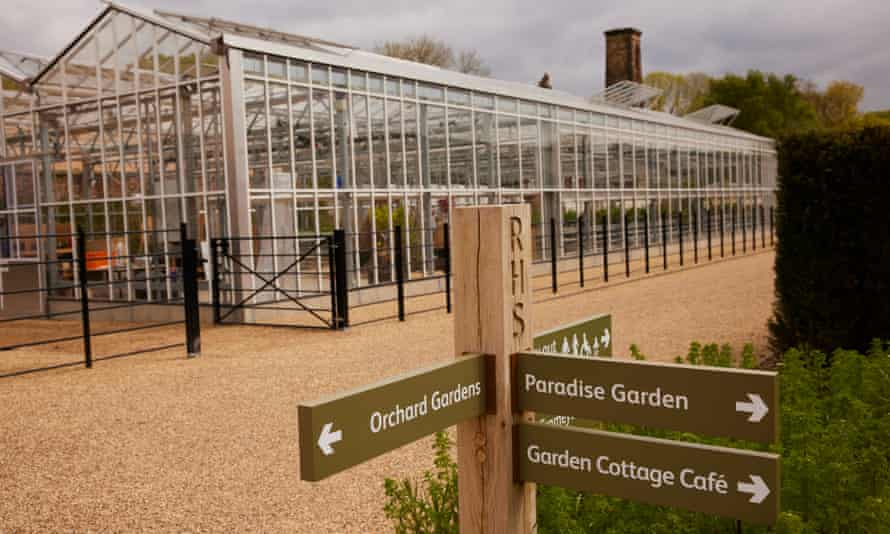The Royal Horticultural Society billed it as “Europe’s biggest gardening project”, a 154-acre garden in one of the most deprived local authorities in England that was going to open up a new audience for one of the country’s most middle-class organisations.
RHS Bridgewater in Salford was supposed to open last summer, but Covid had other ideas. It will finally open to the public on Tuesday, with the curator, Marcus Chilton-Jones, saying the pandemic was a “blessing in disguise” because it gave the RHS an extra 10 months to get the gardens established.
The huge site has regenerated the derelict gardens of the demolished Worsley New Hall stately home near Leigh, a “red wall” constituency in Wigan. It takes its name from the Bridgewater canal on its southern perimeter, which opened in 1761 to transport coal to booming Manchester. Queen Victoria twice visited the hall during the mid 19th-century, and the grubby canal was dyed blue in her honour.
It was requisitioned during the second world war and then left to rot, eventually bulldozered by a scrap merchant who bought it for £2,500. Its landlords are now the Peel Group, the billionaire owners of the Manchester ship canal and developers of MediaCityUK in Salford.

The RHS chose the semi-urban site because it offers a different demographic of visitor, said Chilton-Jones. Though the smart suburb of Worsley is home to footballers’ mansions, Salford and much of Greater Manchester contain some of the poorest communities in England.
“[The RHS] hasn’t built it in Warwickshire, it’s not in Stratford-upon-Avon. It’s Salford. It’s a Labour-voting city. It’s a very deliberate ploy to reach out to a wider audience,” said Chilton-Jones. “The other place they looked at was Stoke-on-Trent, another red city. It was very much part of the thought process to put it somewhere politically, demographically different to its core audience.”
All Salford residents get in for free each Tuesday, dodging the £12.10 admission fee (£7.70 if you arrive on foot or by bicycle). Seven community groups have been given plots at the community garden and local GPs can prescribe free visits to patients instead of antidepressants, welcomed by Bridgewater’s therapeutic gardener, Ozichi Brewster. There are plans for at least 7,000 schoolchildren a year to spend time in the learning garden.
Work began on Bridgewater in 2017. Among the team tasked with clearing the site are a team of rare-breed Berkshire pigs. Described as nature’s best biological ploughs, they have been on site chomping away at weeds for the last three years, working through rubble and debris in an eco-friendly way.
The showstopper is the Weston walled garden, an 11-acre nirvana for the green-fingered, which takes up the same space as the entire Chelsea flower show. It includes the kitchen garden, designed by Chelsea gold medal-winners Charlotte Harris and Hugo Bugg. Designed to be both beautiful and productive, some of the 29,000 plants could end up on your plate if you eat at the Bridgewater cafe. Expect gooseberries to feature heavily on the menu: the garden is nurturing a collection of rare, hyperlocal varieties of the hairy fruit, including Lancashire Lad, Cheshire Lass and Jodrell Bank.

Given Salford’s climate, the gardens feature many rain-loving plants, including euphorbia, willow and aquilegias. But inside the walls of the contemporary paradise garden, the landscape architect Tom Stuart-Smith has created a microclimate that tries to be more Mediterranean than Mancunian, with grit added to the beds to mimic the impoverished soil of Spain.
The RHS is investing £35m in the creation of the garden, which the charity forecasts will generate about £13.2m a year for the local economy by 2030. Salford city council and the RHS worked together to promote jobs at the garden to local residents and claim almost half of the roles have been filled by people living within five miles.
As well as giving Bridgewater an extra growing season before opening, Covid has created a new generation of amateur gardeners who found solace in the soil during successive lockdowns. The RHS hopes many people who previously would have rather got off the M60 for the Trafford Centre may now rather stay on a few junctions for Bridgewater instead. “I would anticipate we would get more people who you might not ordinarily have expected to have an interest in gardening to come and give it a go,” said Chilton-Jones.




